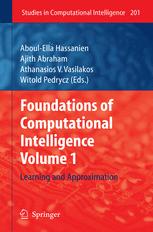

Most ebook files are in PDF format, so you can easily read them using various software such as Foxit Reader or directly on the Google Chrome browser.
Some ebook files are released by publishers in other formats such as .awz, .mobi, .epub, .fb2, etc. You may need to install specific software to read these formats on mobile/PC, such as Calibre.
Please read the tutorial at this link: https://ebookbell.com/faq
We offer FREE conversion to the popular formats you request; however, this may take some time. Therefore, right after payment, please email us, and we will try to provide the service as quickly as possible.
For some exceptional file formats or broken links (if any), please refrain from opening any disputes. Instead, email us first, and we will try to assist within a maximum of 6 hours.
EbookBell Team

0.0
0 reviewsLearning methods and approximation algorithms are fundamental tools that deal with computationally hard problems and problems in which the input is gradually disclosed over time. Both kinds of problems have a large number of applications arising from a variety of fields, such as algorithmic game theory, approximation classes, coloring and partitioning, competitive analysis, computational finance, cuts and connectivity, geometric problems, inapproximability results, mechanism design, network design, packing and covering, paradigms for design and analysis of approximation and online algorithms, randomization techniques, real-world applications, scheduling problems and so on. The past years have witnessed a large number of interesting applications using various techniques of Computational Intelligence such as rough sets, connectionist learning; fuzzy logic; evolutionary computing; artificial immune systems; swarm intelligence; reinforcement learning, intelligent multimedia processing etc.. In spite of numerous successful applications of Computational Intelligence in business and industry, it is sometimes difficult to explain the performance of these techniques and algorithms from a theoretical perspective. Therefore, we encouraged authors to present original ideas dealing with the incorporation of different mechanisms of Computational Intelligent dealing with Learning and Approximation algorithms and underlying processes.
This edited volume comprises 15 chapters, including an overview chapter, which provides an up-to-date and state-of-the art research on the application of Computational Intelligence for learning and approximation.